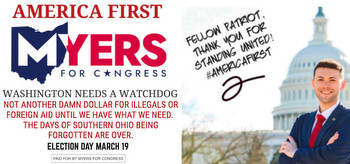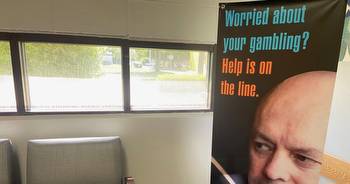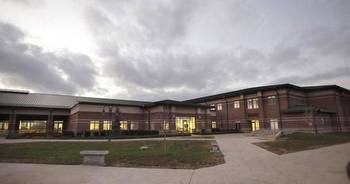Coalition conducting Problem Gambling survey

ST. CLAIRSVILLE — The Belmont County Partners in Prevention Coalition is looking for residents to take part in an online Problem Gambling survey to gauge the potential need for gambling addiction services in Belmont, Harrison and Monroe counties.
Catherine Lanham, community prevention specialist for the coalition, said they launched the survey last month. It includes 26 questions, all of which are anonymous. The multiple-choice survey only takes a few minutes to complete, she said.
Lanham said they are working to gather data on how gambling affects people in the communities to ensure they have adequate resources to help those people.
“We’re trying to get as many responses as we can in those three county areas,” she said, adding that they welcome anyone and everyone to take the survey.
To date the coalition has received 97 responses. Lanham said those responses are fairly equally spread among people in all three counties.
The goal is to obtain around 300 participants – around 100 from each county.
The survey contains questions regarding the person’s age, gender, residency, connections with gambling, particular types of gambling enjoyed and feelings toward gambling.
Lisa Ward, executive director of the Mental Health and Recovery Board for Belmont, Harrision, and Monroe Counties, said the agency wanted to be proactive as it has grown concerned about sports betting becoming legal on Jan. 1 in Ohio.
“We just wanted to get ahead of this and see how folks are feeling. Where are the problems? Is there a problem? What are the age groups that we need to be concerned about? So we are encouraging everybody to fill out the survey,” she said.
Lanham said other states’ statistics have shown a “drastic increase” in help line calls in other states following the legalization of sports betting. She said it affects a variety of age groups from teens up to the elderly.
“We just want to be ahead of the game. … We just want to make sure our counties are ready for that,” she said, adding that an increase in calls has been discovered in Connecticut, West Virginia and Pennsylvania.
Ward said they are planning some campaigns for the spring to help bring awareness to gambling addiction.
“This is an addiction that sometimes we don’t think about. It is a very slippery slope when folks get caught up in it,” she said, adding that once the staff has gathered the information from the survey, they can further plan efforts around that. “We’ll know what age groups, what areas to target.”
The coalition is planning to conduct a second survey in six to 12 months to compare the data collected to see if there is a change locally after sports gambling is legalized.
The survey can be found online at https://forms.gle/JgVhGkjjv8LkUoMT9. It will be available until Dec. 31.
Anyone with a gambling addiction or who knows someone at risk can call the Problem Gambling Helpline at 800-589-9966.


































